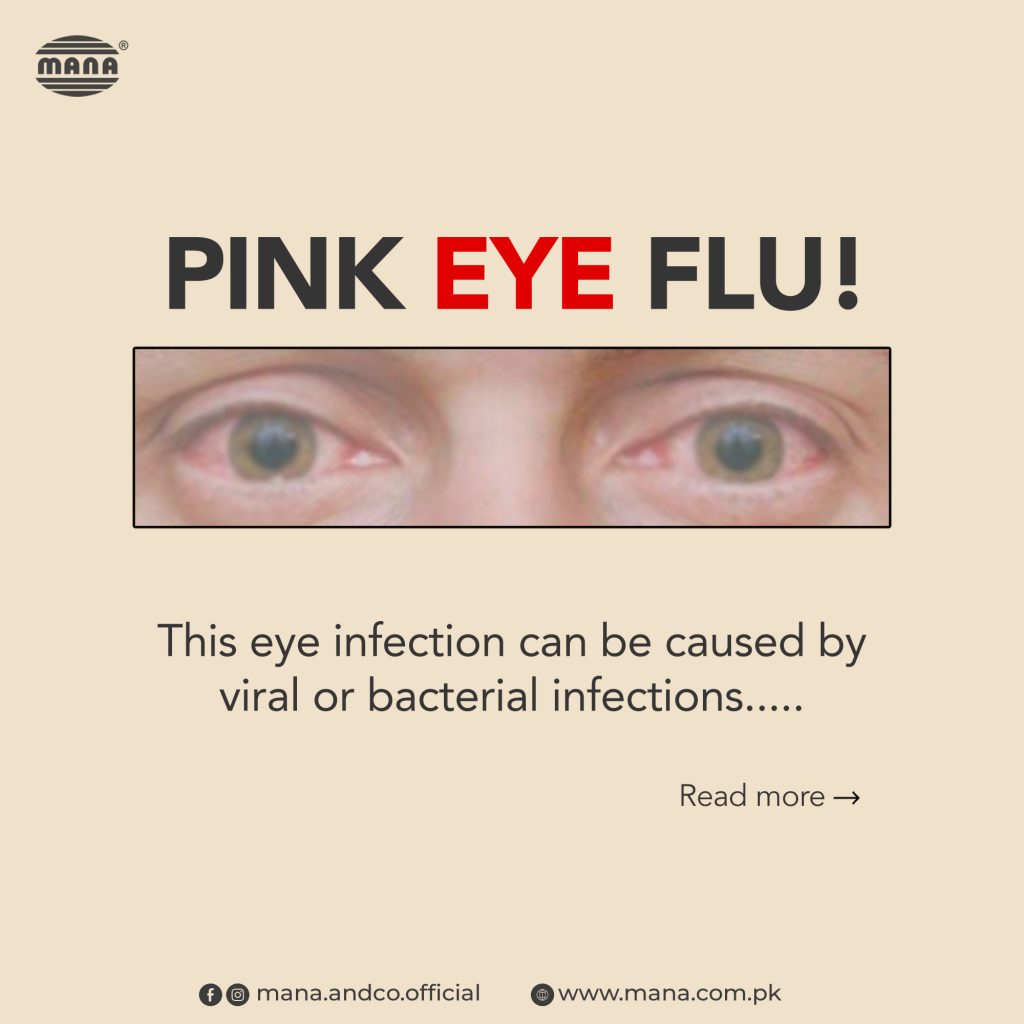Conjunctivitis, also referred to as pink eye flu disease , is currently on the rise in different regions of Pakistan. In response to the rising number of cases of this highly spreadable eye condition, the Sindh Health Department has released an advice. Although there haven’t been any cases of intense conjunctivitis caused by a viral infection reported, it’s still important to be cautious and take precautions. This article seeks to educate readers on pink eye disease prevention and care at home.

Seeing Clearly: Preventing the Wave of Pink Eye Infection
According to the Sindh Health Department, conjunctivitis, sometimes known as pink eye, is spreading throughout different of Pakistan. Both bacterial and viral infections, as well as allergies, can contribute to this eye illness. Bacterial conjunctivitis is more common in school-aged children.
Redness, swelling, itching, and burning in the eyes are signs of pink eye flu or conjunctivitis. The eyelids can remain together in bacterial situations due to increased tearing and pus discharge. Viral conjunctivitis may present alongside symptoms of a cold, flu, or respiratory infection.
Preventions:
To prevent the spread of conjunctivitis, it is essential to practice good hygiene.
Follow these precautionary measures:
- Wash hands thoroughly with soap and warm water for at least 20 seconds.
- Use hand sanitizer when soap and water are not available.
- Avoid touching or rubbing the eyes.
- Do not share personal items like towels, pillowcases, or eye makeup.
- Clean and disinfect frequently-touched surfaces.
- Wash hands immediately after administering eye drops to affected individuals.
Treating Pink Eye Flu: Eye Drops and Professional Advice
⚠️ It’s important to consult with a healthcare professional before using any eye drops, tubes, or medications for pink eye. Proper diagnosis and personalized recommendations are key to effective treatment. Here are some common types of eye drops for pink eye:
- Antibiotic eye drops: Kill bacteria causing bacterial conjunctivitis.
- Antiviral eye drops: Reduce severity and duration of viral conjunctivitis.
- Antihistamine eye drops: Relieve symptoms of allergic conjunctivitis.
- Lubricating eye drops: Provide relief from dryness and discomfort.
💡 Remember that depending on criteria including the underlying reason and your medical history, only a healthcare professional can choose the best eye drops for your particular condition.
Quick Home Treatments for Conjunctivitis (Pink Eye):
- Avoid contact with conjunctivitis patients: Stay away from individuals suffering from conjunctivitis to prevent transmission.
- Wear sunglasses: Protect your eyes from sunlight by wearing sunglasses when outdoors, as sunlight can worsen the infection.
- Wash hands regularly: Practice regular handwashing to reduce the risk of spreading the infection.
- Apply a cold compress: Use a cold compress to reduce eye inflammation and relieve discomfort.
- Use artificial tears or lubricating eye drops: Soothe dryness and irritation with artificial tears or lubricating eye drops.
- Avoid wearing contact lenses: Refrain from wearing contact lenses until the infection clears.
- Clean the eyes gently: Use a clean, damp cloth to gently clean the eyes and remove any discharge.
- Practice good eye hygiene: Avoid using expired eye makeup or sharing eye cosmetics to maintain good eye hygiene.
- Put a warm compress on the eyes: Apply a warm, wet washcloth on the eyes to reduce itching and discomfort.
- Avoid rubbing or touching the eyes: Minimize contact and refrain from rubbing or touching the eyes to prevent the spread of bacteria.
- Change pillowcases often: Frequently change bed linens and pillowcases to prevent reinfection, especially in the case of bacterial conjunctivitis.
- Refrain from using makeup: Avoid using any cosmetics, particularly mascara and eyeliner, while experiencing pink eye symptoms.
- Increase intake of vitamins A and C: Incorporate vitamin-rich foods like spinach, carrots, and citrus fruits to boost immunity and reduce inflammation.
Conclusion
Immediate action is required to stop the spread of conjunctivitis due to the rising number of cases in different regions of Pakistan. The risk of infection can be considerably decreased by adhering to good hygiene habits and taking the required measures, such as frequently washing hands and refraining from scratching one’s eyes. It is advised to get medical advice from a qualified practitioner for a suitable diagnosis and course of treatment if symptoms extend or get worse.
References
https://www.who.int/home
https://www.nhsrc.gov.pk
https://pmdc.pk
https://www.phc.org.pk
https://mana.com.pk
Shop Health Care Products at: https://medisign.mana.com.pk/
Facebook: www.facebook.com/mana.andco.official
Instagram: www.instagram.com/mana.andco.official
Linkedin: www.linkedin.com/company/mana-andco-official
